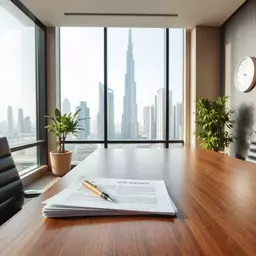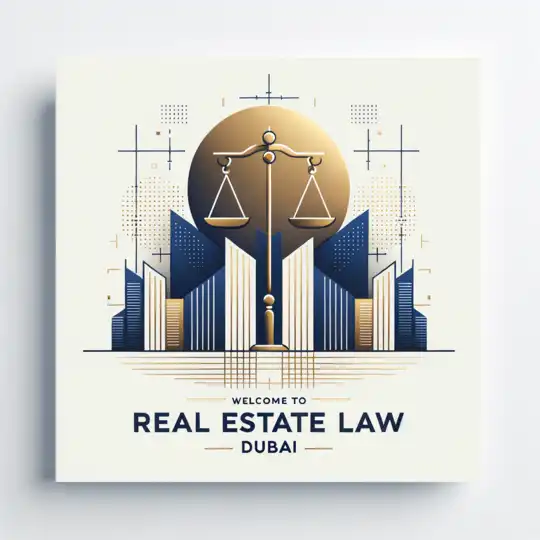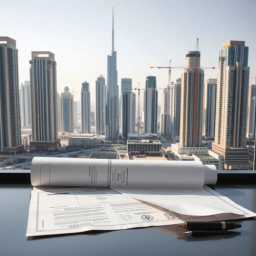In a rapidly evolving real estate market like Dubai, understanding how to effectively navigate disputes can be the difference between success and failure. As the demand for properties rises and regulations shift, being prepared is not just beneficial—it’s essential.
What You Will Learn
- Understanding Market Dynamics: Recognize the current trends in Dubai's real estate market, such as rising demand and regulatory changes, to anticipate potential disputes.
- Legal Framework Familiarity: Gain insights into key regulations like Federal Law No. 5 of 1985, which governs property transactions and outlines rights and obligations.
- Dispute Resolution Mechanisms: Explore various dispute resolution options available, including mediation, conciliation, and arbitration, and their implications for property disputes.
- Preventive Measures: Learn best practices for drafting contracts and maintaining documentation to mitigate future disputes and ensure smoother transactions.
- Importance of Documentation: Understand the necessity of keeping detailed records of all transactions and communications to support claims in case of disputes.
- Jurisdictional Awareness: Be aware of the differences between onshore and free zone regulations and how they affect dispute resolution in Dubai.
- Regulatory Compliance: Stay updated on changes in local laws to safeguard your investments and ensure compliance with Dubai's real estate regulations.
Dispute Resolution Options and Their Benefits
Understanding various dispute resolution mechanisms is crucial for effective property transactions in Dubai. Below is a visual representation outlining the different options available along with their respective advantages. For comprehensive guidance, consider exploring Dubai real estate lawyer services.
Mediation
- Confidentiality: Allows for private discussions.
- Cost-Effective: Generally cheaper than litigation.
- Faster Resolutions: Quick agreements can be reached.
Conciliation
- Facilitator: A neutral party helps reach a resolution.
- Less Formal: More relaxed than litigation.
Litigation
- Court Process: Dispute escalated to the courts.
- Formal Resolution: Legally binding outcomes.
- Long Duration: Can be time-consuming and expensive.
Arbitration
- Binding Decisions: Final and enforceable outcomes.
- Expert Arbitrators: Specialists in real estate disputes.
- Custom Processes: Tailored to the parties' needs.
Understanding Dispute Resolution Mechanisms in Dubai Real Estate
As I navigate through the complexities of Dubai's real estate market, I often encounter various challenges and disputes. It's essential to have a solid grasp of the dispute resolution mechanisms available. This understanding not only empowers buyers and sellers but also ensures a smoother transaction process. So, let's explore the landscape together!
Overview of Dubai's Real Estate Landscape
Dubai's real estate sector is known for its vibrancy and rapid growth, attracting investors from around the globe. With a mix of luxurious properties and affordable housing, the market is diverse. However, it comes with its own share of challenges, leading to a variety of disputes that can arise during property transactions.
Current Market Trends and Common Disputes
In recent years, we've seen some significant trends shaping the market:
- Increasing Demand: There's a growing appetite for both residential and commercial properties.
- Regulatory Changes: New laws are frequently introduced, affecting property ownership and rights.
- Common Disputes: Issues related to payment delays, contractual breaches, and property value discrepancies are on the rise.
These factors can lead to misunderstandings and conflict among parties involved, highlighting the need for effective resolution methods.
Importance of Effective Dispute Resolution
Why should we care about dispute resolution? Well, effective mechanisms can save both time and money for all parties involved. Here are a few reasons why:
- Cost Efficiency: Resolving disputes amicably often incurs lower costs than litigation.
- Time-Saving: Quick resolutions help maintain business relationships and avoid lengthy court processes.
- Preservation of Reputation: A good dispute resolution strategy enhances your credibility in the market.
As someone dedicated to ensuring smooth transactions at Real Estate Law Dubai, I always emphasize the importance of understanding these mechanisms. They can make a world of difference in your real estate journey! For further details on resolving property issues, see our guide on Resolving Property Disputes in Dubai.
Legal Framework Governing Real Estate Disputes in Dubai
Understanding the legal framework is crucial for addressing disputes effectively. The laws governing real estate in Dubai provide a solid foundation for resolving conflicts. They guide both buyers and sellers in their rights and obligations.
Key Regulations: Federal Law No. 5 of 1985 and Others
One of the cornerstones of real estate law in the UAE is Federal Law No. 5 of 1985, which regulates property transactions. This law establishes the rules for ownership, leasing, and dispute resolution. Additionally, several other regulations complement it:
- Dubai Land Department (DLD) Laws: These govern property registration and transfer.
- Real Estate Regulatory Agency (RERA) Guidelines: These ensure transparency and protect investors' rights.
- UAE Civil Code: This code covers general contractual obligations and dispute resolution principles.
Staying informed about these regulations is essential for anyone engaging in the Dubai real estate market.
Role of Dubai's Regulatory Bodies: RERA and DLD
The Real Estate Regulatory Agency (RERA) and the Dubai Land Department (DLD) play pivotal roles in overseeing property transactions. They help ensure compliance and protect the rights of all parties involved. Here’s how they contribute:
- RERA: Provides guidelines for dispute resolution and maintains a database of developers and projects.
- DLD: Handles property registrations and enforces regulatory compliance.
By understanding their roles, you can better navigate the complexities of real estate disputes.
UAE Civil Code and Its Impact on Real Estate Disputes
The UAE Civil Code serves as a legal framework that impacts real estate disputes significantly. It outlines the fundamental principles of contract law, affecting how agreements are interpreted and enforced. Key takeaways include:
- Contractual Obligations: Both parties must fulfill their obligations as outlined in contracts.
- Liability for Breach: Clear repercussions are defined for failing to meet contractual agreements.
- Dispute Resolution Guidelines: The code emphasizes the importance of resolving conflicts amicably.
These features are vital for anyone involved in property transactions, as they shape how disputes are handled. For more in-depth guidance, consider our article on Property Disputes in Dubai: Legal Insights.
Dispute Resolution Options Available for Property Disputes
Now that we've covered the legal framework, let's explore the various dispute resolution options available in Dubai. Each option has its own processes and implications, so understanding them is crucial.
Mediation: Understanding the Amicable Settlement Centre
Mediation is often the first step in resolving disputes. The Amicable Settlement Centre provides a platform for parties to resolve their differences without going to court. Benefits of mediation include:
- Confidentiality: The process is private, allowing for open discussions.
- Cost-Effective: Mediation is generally less expensive than litigation.
- Faster Resolutions: Parties can reach an agreement more quickly.
Engaging in mediation can be a productive way to clear up misunderstandings and reach a mutual agreement.
Conciliation and Litigation: Processes and Implications
If mediation fails, conciliation or litigation may be necessary. Here’s a brief overview of each:
- Conciliation: A neutral third party helps facilitate a resolution, which can still be less formal than litigation.
- Litigation: This involves taking the dispute to court, which can be a lengthy and costly process.
Understanding these processes can help you make informed decisions on how to proceed when disputes arise.
Arbitration in Dubai: DIFC and ADGM Insights
Arbitration is another viable option for resolving property disputes in Dubai. The Dubai International Financial Centre (DIFC) and the Abu Dhabi Global Market (ADGM) offer arbitration services that are recognized globally. Key aspects of arbitration include:
- Binding Decisions: The arbitration outcome is usually final and enforceable.
- Expert Arbitrators: Parties can choose arbitrators with specific expertise in real estate.
- Flexibility: Arbitration allows for tailored procedures based on the parties’ needs.
Arbitration can be a great alternative to traditional litigation, especially for complex real estate disputes.
Role of the Dubai International Arbitration Centre (DIAC)
The Dubai International Arbitration Centre (DIAC) is a key player in the arbitration landscape. It provides facilities and services for arbitration cases. Why should you consider DIAC?
- Established Reputation: DIAC is well-regarded for its efficiency and fairness.
- Comprehensive Rules: The centre has specific rules that guide the arbitration process.
- International Recognition: Decisions made here are generally recognized globally, adding weight to the outcomes.
Utilizing DIAC can enhance the chances of a favorable outcome in property disputes.
Preventive Measures to Avoid Real Estate Disputes
Finally, let's discuss preventive measures that can help avoid disputes altogether. Taking the right steps from the beginning can save you a lot of time and trouble later on.
Best Practices in Contract Drafting and Developer Verification
When it comes to property transactions, well-drafted contracts are your best defense. Here are some best practices:
- Clear Terms: Clearly define the rights and obligations of all parties involved.
- Thorough Verification: Always verify the developer's credentials and project approvals.
- Specify Payment Terms: Outline payment schedules and possible penalties for delays.
These steps can help mitigate misunderstandings and ensure a smoother transaction process.
Documentation Maintenance to Mitigate Future Disputes
Keeping thorough documentation is essential! Maintaining records of all transactions, communications, and agreements can help you resolve any issues swiftly. Here’s what to consider:
- Keep Copies: Always store copies of contracts, receipts, and correspondence.
- Organize Records: Use a system that makes it easy to find documents when needed.
- Regular Updates: Update records to reflect any changes in agreements or terms.
This proactive approach can save you from potential disputes down the road.
Understanding Dispute Resolution Clauses in Lease Agreements
Lastly, understanding the dispute resolution clauses in your lease agreements is crucial. These clauses typically outline how disputes will be handled, which can be helpful during conflicts. Here are some elements to look out for:
- Notification Procedures: Ensure you know how to notify the other party about a dispute.
- Resolution Steps: Familiarize yourself with the steps that must be taken before escalating the issue.
- Jurisdiction: Verify which laws will govern the resolution process.
By being well-informed, you can navigate disputes more effectively and protect your rights as a property investor or tenant. For insights into resolving landlord-tenant issues, refer to our article on Tenant-Landlord Dispute Resolution Steps.
Quick Summary
Here’s a brief recap of the key points discussed so far:
- Understanding the Market: Dubai's real estate landscape is vibrant but can lead to disputes due to regulatory changes and common issues.
- Effective Resolution: Knowing dispute resolution mechanisms—like mediation, conciliation, and arbitration—can save time and money.
- Preventive Measures: Proper contract drafting and thorough documentation can help mitigate future disputes.
Frequently Asked Questions (FAQs)
- Q: What are the primary dispute resolution options available in Dubai's real estate market?
- A: The primary options include mediation (often through the Amicable Settlement Centre), conciliation, litigation (through the courts), and arbitration (offered by centers like DIAC, DIFC, and ADGM).
- Q: What is the role of Federal Law No. 5 of 1985 in Dubai real estate disputes?
- A: Federal Law No. 5 of 1985 is a cornerstone of real estate law in the UAE, regulating property transactions, establishing rules for ownership and leasing, and guiding dispute resolution processes.
- Q: How do RERA and DLD contribute to dispute resolution?
- A: RERA (Real Estate Regulatory Agency) provides guidelines for dispute resolution and protects investors' rights, while DLD (Dubai Land Department) handles property registrations and enforces regulatory compliance, ensuring transparency in transactions.
- Q: What preventive measures can property investors take to avoid disputes?
- A: Key preventive measures include drafting clear and comprehensive contracts, thoroughly verifying developers' credentials, maintaining detailed records of all transactions and communications, and understanding dispute resolution clauses in lease agreements.
- Q: What are the benefits of arbitration compared to litigation for real estate disputes?
- A: Arbitration offers binding and enforceable decisions, allows for expert arbitrators specializing in real estate, and provides flexibility for tailored processes, often making it a more efficient and specialized alternative to the time-consuming and costly nature of litigation.
Concluding Insights on Dispute Resolution in Dubai's Real Estate Market
As we wrap up our discussion on dispute resolution in Dubai’s real estate market, it’s essential to reflect on the critical elements that can shape your property investment journey. Whether you are a buyer, seller, or developer, understanding the mechanisms available to resolve disputes can significantly influence your experience. The goal is to navigate the complexities of the market with confidence and clarity.
Key Takeaways for Property Investors and Developers
One of the most important lessons from our exploration is the need for proactive dispute resolution planning. By anticipating potential conflicts and having a strategy in place, you can save time, money, and stress. Here are a few key points to consider:
- Clarify Contracts: Ensure that contracts are clear, concise, and include dispute resolution clauses.
- Know Your Rights: Familiarize yourself with local laws and regulations governing real estate.
- Keep Records: Maintain documentation of all transactions and communications to support your claims if needed.
Another vital takeaway is understanding the jurisdictional differences when it comes to dispute resolution. Dubai has both onshore and free zone regulations that may affect how disputes are handled. Knowing these distinctions can help you navigate your legal obligations more effectively! You can also gain a deeper understanding by reading about Navigating Dubai Property Law Basics.
Lastly, ensuring regulatory compliance with Dubai's real estate laws is non-negotiable. It’s crucial to stay updated on any changes in legislation that could impact your investments. As a legal expert in this field, I often remind my clients at Real Estate Law Dubai that being well-informed can make all the difference in safeguarding your interests.
Call to Action for Further Engagement and Consultation
If you find yourself facing a property dispute, or if you simply want to be proactive in your investments, don’t hesitate to seek legal advice. Knowing when to consult a professional can save you from future complications. Here are a few scenarios where reaching out is advisable:
- When drafting or reviewing contracts.
- If a dispute arises that you cannot resolve amicably.
- Before making significant property investments.
In addition, utilizing resources and services for effective dispute resolution can be beneficial. Resources like the Dubai International Arbitration Centre (DIAC) can provide valuable support in resolving conflicts efficiently. Engaging legal consultants and property management firms can also enhance your understanding of the market and protect your interests.
As someone deeply passionate about empowering individuals in the real estate sector, I encourage you to take these insights to heart. Remember, navigating Dubai's real estate landscape doesn’t have to be overwhelming—equipped with the right knowledge, you can confidently engage in property transactions while protecting your rights. Let’s embark on this journey together!
Recap of Key Points
Here is a quick recap of the important points discussed in the article:
- Understanding Dispute Resolution: Familiarity with dispute resolution mechanisms is essential for smooth real estate transactions in Dubai.
- Legal Framework: Key regulations such as Federal Law No. 5 of 1985 and guidelines from RERA and DLD govern property disputes.
- Dispute Resolution Options: Options available include mediation, conciliation, litigation, and arbitration, each with distinct processes and implications.
- Preventive Measures: Best practices in contract drafting, thorough documentation maintenance, and understanding dispute resolution clauses can help avoid future disputes.
- Proactive Planning: Anticipating conflicts and having a dispute resolution strategy in place can save time and resources for investors and developers.
- Stay Informed: Keeping updated on local laws and regulations is crucial for compliance and safeguarding investment interests.









